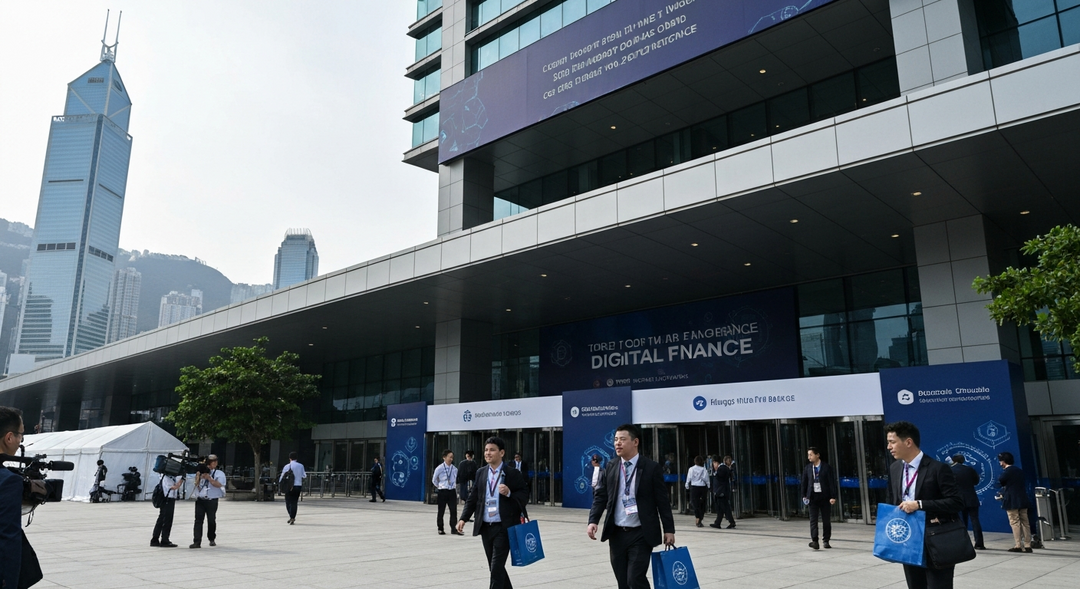Hong Kong firm IVD Medical makes strategic crypto investment today.
The medical technology company has allocated $19 million to acquiring ether, demonstrating a powerful shift toward blockchain integration within its operations. The investment is not a passive move, as IVD Medical intends to utilize ether as a pivotal element in a broader strategy to tokenize healthcare assets.
IVD Medical is actively building a digital infrastructure through a platform called ivd.xyz, which is designed to bring pharmaceutical intellectual property and other healthcare assets onto the blockchain. Ethereum smart contracts form the backbone of this initiative, offering security, transparency, and streamlined business automation.
Gary Deng, Chief Strategy Officer at IVD Medical, highlighted why the company selected Ethereum as its core digital asset. With Ethereum recognized worldwide for its mature smart contract capabilities and high liquidity levels, it becomes an attractive option for firms seeking to bridge traditional industries with blockchain innovations.
Institutional recognition for ether has been building steadily, especially after the US Securities and Exchange Commission’s landmark approval of a spot ether exchange traded fund. This growing credibility further reinforced IVD Medical’s decision to anchor its tokenization project around Ethereum’s architecture.
The company intends to use ether for multiple real-world functions on the platform. Confirming on-chain ownership, distributing revenue automatically to stakeholders, and managing regulatory compliance through tokenized asset governance are central goals.
Beyond these core uses, IVD Medical has mapped out plans to deploy ether as a settlement tool for the IVDD stablecoin, which will underpin seamless international transactions compliant with both Hong Kong and US standards.
Revenue generated by tokenized healthcare and pharmaceutical transactions will be routed back into ether, with proceeds deposited directly into the company’s growing crypto treasury. This approach brings operational efficiency and enhances the speed of global settlements, a critical necessity for cross-border business in today’s interconnected economy.
In pursuit of further gains and financial stability, IVD Medical also intends to stake, re-stake, and enter derivatives positions using its ether reserves. This multifaceted approach is aimed at amplifying returns, improving liquidity, and providing downside protection against market volatility.
IVD Medical’s bold crypto treasury move places it among a selective group of Hong Kong Stock Exchange-listed companies that have committed significant resources to digital assets. Most of these firms, however, have favored bitcoin as their primary holding, making IVD Medical’s commitment to ether a noteworthy departure.
Past examples include Boyaa Interactive, which currently holds over 3,100 bitcoin valued at more than $300 million. Boyaa reached this position after selling most of its previous ether holdings.
Another notable digital asset strategy came from Meitu, which acquired both ether and bitcoin in 2021 before divesting those assets amid market shifts. This industry trend shows the evolving strategies of major Hong Kong corporations as they adapt to dynamic crypto markets.
Several smaller firms have also ventured into digital asset holdings, albeit on more modest scales. Yuxing InfoTech, Moon Inc., and Walnut Capital are among the handful of publicly traded companies with bitcoin reserves, either through direct purchase or shareholder contributions.
The most recent move by IVD Medical comes as part of a broader cooperation with HashKey Group, which operates one of Hong Kong’s licensed cryptocurrency exchanges. The partnership underscores IVD Medical’s long-term commitment to blockchain-driven healthcare solutions. The involvement of an established local exchange also points to a maturing regulatory environment where digital assets are gaining stronger institutional adoption.
This strategic shift has implications far beyond the balance sheet. Tokenizing real world assets in the healthcare sector could bring new standards in transparency, traceability, and compliance. The capacity to automate complex revenue distribution models and meet regulatory requirements, while benefiting from blockchain’s built-in security, presents real advantages over traditional asset management approaches.
Stakeholders and investors are closely watching as this new chapter unfolds in the Hong Kong digital economy. Initiatives like these signal confidence in the future of asset tokenization and the underlying platforms powering this transformation.
For individuals and companies interested in entering this innovative space, opportunities such as Start Cloud Mining offer a pathway to engage with blockchain technology and participate in the digital asset ecosystem.
Conclusion
The decision by IVD Medical to inject $19 million in ether for healthcare asset tokenization represents more than an investment move. It marks a pivotal step toward building a more efficient, transparent, and globally oriented business model within the medical sector.
As other firms observe the merging of real-world assets and blockchain, IVD Medical’s initiative serves as a blueprint for future collaboration between established industries and digital finance. The market will be watching how this integration shapes the development of both healthcare technology and digital asset markets in the region.

Ewan’s fascination with cryptocurrency started through his curiosity about innovative technologies reshaping the financial world. Over the past four years, he has specialized in cloud mining and crypto asset management, diving deep into mining contracts, profitability analysis, and emerging trends. Ewan is dedicated to helping readers understand the technical and economic aspects of crypto mining, making complex information accessible and actionable.




